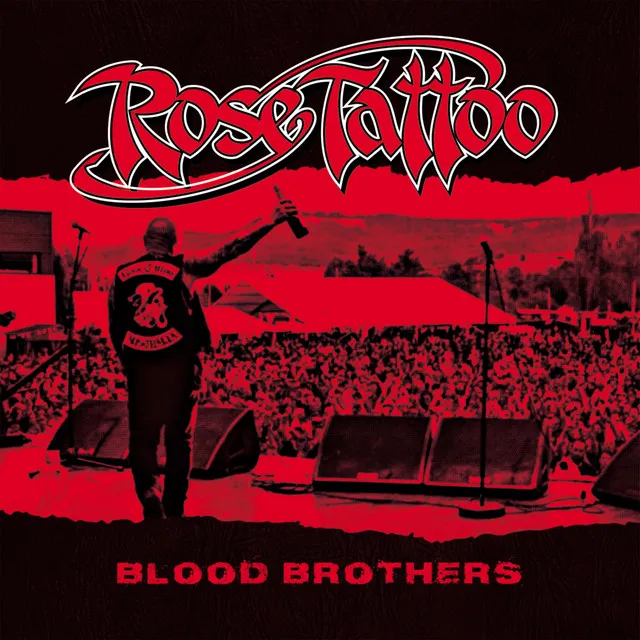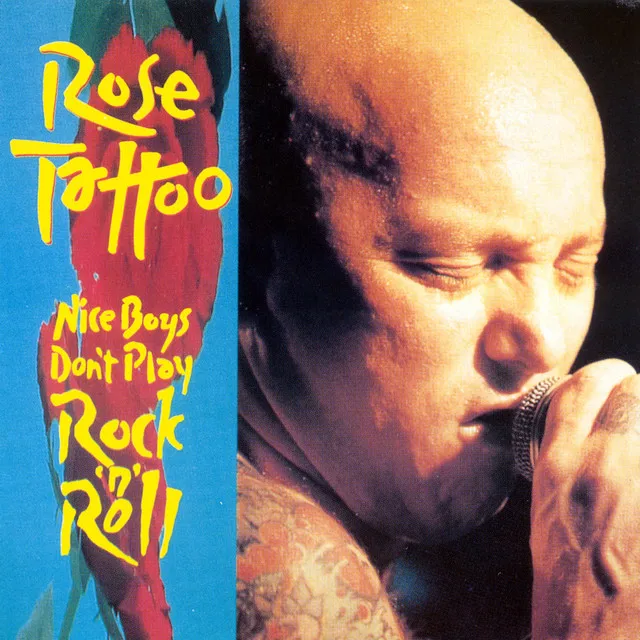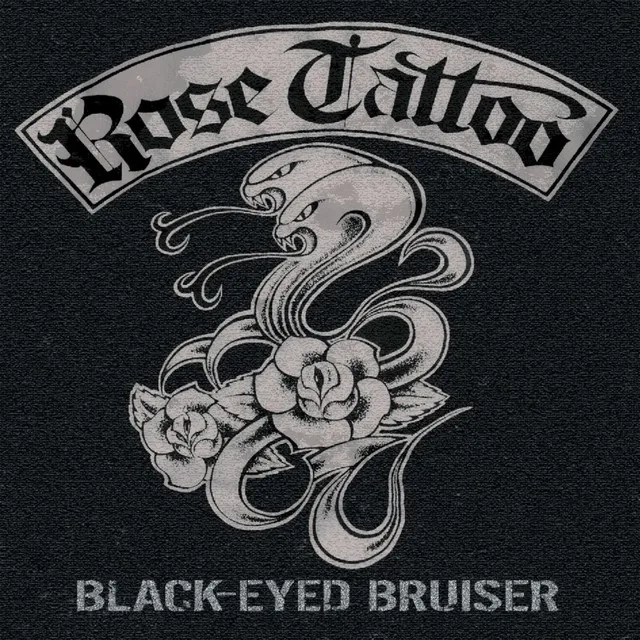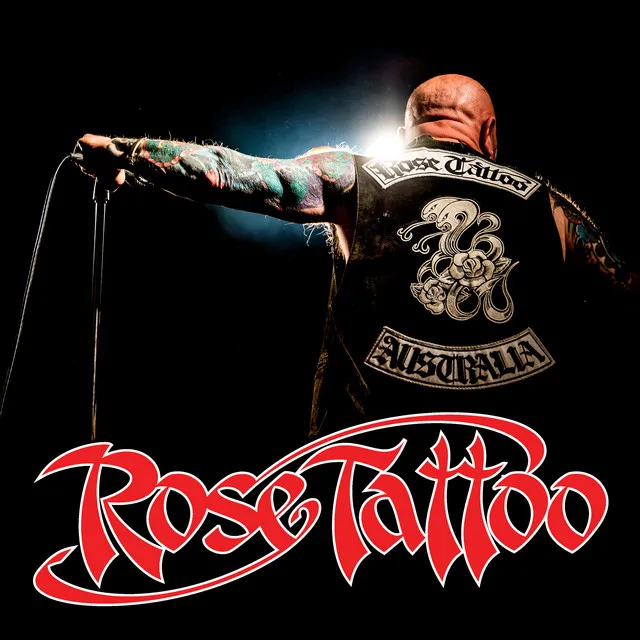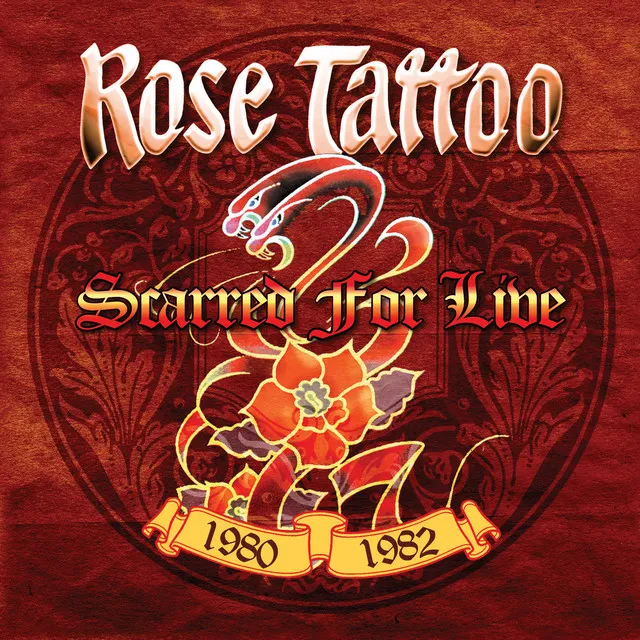Aussie hard rock combo Rose Tattoo have persisted on and off with many personnel changes for many decades, despite the deaths of most of the early band's lineup. Emerging in the late 1970's with a bluesy blend of strident hard rock and melodic, no-frills heavy metal, the band's first four albums yielded the hits "Bad Boy for Love," "Rock 'n' Roll Outlaw," "Nice Boys," and "Scarred for Life." One of Australia's premier hard rock acts, Rose Tattoo found less success overseas, though they did influence American acts like Guns N' Roses, Keel, L.A. Guns, and Nashville Pussy, all of whom have covered the band's songs. After disbanding in 1987 the group reassembled in 1998 and have since gone on to issue three more studio albums, including 2020's Outlaws, with lead singer Angry Anderson serving as the band's sole original member. In 2006 they were inducted into the Australian Recording Industry Association (ARIA) Hall of Fame.
Rose Tattoo was formed in Sydney in 1976 by ex-Buffalo guitarist Peter Wells and -- with the additions of former Buster Brown vocalist Angry Anderson, guitarist Mick Cocks, bassist Ian Rilen, and drummer Dallas "Digger" Royal -- made its public bow on New Year's Eve at the local club Chequers, which several years earlier launched the career of AC/DC. Chiefly inspired by the Rolling Stones and the Faces, Rose Tattoo's ferocious, ear-splitting sound quickly earned a devoted following among Sydney area pubgoers, and in 1978 the group signed to Albert Productions; its debut single, "Bad Boy for Love," was written by Rilen, who left the lineup prior to the record's release. Anderson's onetime Buster Brown bassist Geordie Leach was recruited for Rose Tattoo's self-titled debut LP; after nearly three years of relentless touring, a period that saw Aussie guitar hero Lobby Loyde briefly replace Leach on bass, they issued the follow-up, Assault & Battery, in 1981.
After a tour of Europe that saw them hailed as the loudest band to play London's Marquee Club since Led Zeppelin, Rose Tattoo returned to Australia to begin work on their third album; with new guitarist Robin Riley replacing Cocks, they issued Scarred for Life in 1982, subsequently touring the U.S. in support of Aerosmith and ZZ Top. However, over the course of 1983 Wells, Royal, and Riley all left the group, with the remaining duo of Anderson and Leach recruiting guitarists Greg Jordan and John Meyer along with drummer Scott Johnston to record 1984's Southern Stars. Leach then exited to join Wells, Royal, and Riley in the short-lived Illustrated Men; Anderson and Johnston continued on as Rose Tattoo, enlisting guitarist Tim Gaze and bassist Andy Cichon for 1986's Beats from a Single Drum. Anderson finally mounted a solo career soon after, as did Wells. After years of substance abuse, Royal died in 1991.
At the request of longtime fans Guns N' Roses, Anderson, Wells, Cocks, Leach, and new drummer Paul DeMarco re-formed Rose Tattoo in 1993 to open for the Gunners on their Australian tour; the reunion proved brief, however, and upon completing the tour each member returned to his solo endeavors. The same lineup, with original bassist Ian Rilen replacing Leach, re-formed yet again in 1998 for the All Hell Breaks Loose!! tour; by the following year, Leach had returned to the fold once more. The live album 25 to Life arrived in fall 2000, followed by the studio effort Pain, featuring a lineup of Anderson, Wells, Riley, and DeMarco along with bassist Steve King, in 2002. Sadly, founding members Peter Wells and Ian Rilen both died of cancer in 2006; yet Rose Tattoo carried on, over 30 years after the band first formed, to release Blood Brothers in 2007 (the same year that Lobby Loyde would die in Melbourne after battling lung cancer), with a lineup featuring Anderson, returning guitarist Mick Cocks, who died of cancer in 2009, King, DeMarco, and guitarist Dai Pritchard. In 2020 a lineup featuring Anderson, Pritchard, Bob Spencer, Mark Evans and Jackie Barnes put out Outlaws, a re-recording of the band's eponymous debut that also included three prefiously unreleased songs from the era. ~ Jason Ankeny & James Christopher Monger, Rovi

